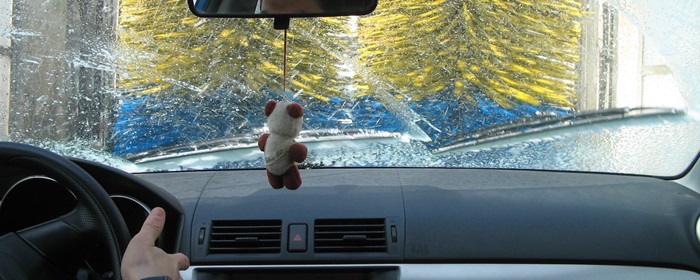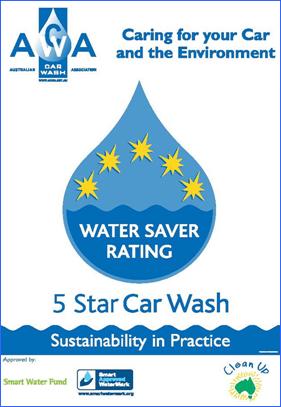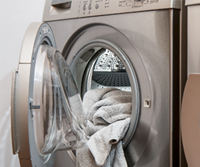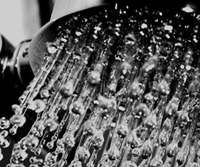Car Washing
There are lots of ways to clean cars without wasting too much water
The days of 'watering' our drives are thankfully now long gone; but we still need to clean our cars, bikes and boats. Smart technologies, from at-home waterless car washes through to high pressure low-flow cleaners, can help you clean and be efficient with your water use. Using a commercial car wash will generally use less water than doing it at home too.
Home car washing
Waterless car washes often include a UV filter in the finish, helping protect your car's paintwork. Low-flow high pressure cleaners use similar amounts of water as a water efficient shower heads i.e. less than 7 litres of water a minute. Efficient technologies such as recycling systems are also used in commercial car washes.
You can save water when cleaning your car at home by:
- using a waterless car wash
- using a low flow/high pressure wash
- washing your car in the rain
- washing your car on the lawn, using biodegradable cleaning chemicals, gives your grass a good watering in addition to cleaning your car.
- washing with greywater from your bath
- using a bucket or a hose fitted with a trigger nozzle (this is a requirement in Canberra under our Permanent Water Conservation Measures that have been in place since 2010)

Commercial car washing
If you go to a car wash make sure it is a Water Saving Rating Five Star approved car wash - look out for the Australian Car Wash Association sign and Smart Approved WaterMark logo. Generally, commercial car wash operators must meet certain requirements regarding water use and wastewater disposal. As a result, using a commercial car wash is a much more environmentally sustainable practice than washing a car at home.
- When soaps and other solvents are used to clean cars at home, they dissolve not only dirt and grease into the waste water but also toxic surfactants, hydrocarbons and heavy metals such as copper, lead and zinc. These compounds are dangerous for the plant and animal life in our creeks, rivers and coastline waters.
- On average, a home car wash results in over 100 litres of wastewater, dirt and pollutants. If collected and allowed to settle, this car wash waste produces approximately 750 millilitres of thick black oily sludge from each car that is washed. There are over 13 million vehicles in Australia.
- In a commercial, regulated car wash, the dirty, contaminated run-off goes through special settlement pits to sewer. None is allowed to run off into the stormwater systems which drain into the rivers and bays, as often happens with home washing.
- Commercial car washes are also water-efficient with very high pressure pumps and small nozzles on the trigger guns. When the automatic equipment is linked to a recycling system, 70-80% of the water is reclaimed, cleaned and re-used.
Water Saver Approved Car Wash Rating Scheme
By using fine nozzles, high-pressure hoses and recycled water reclaimed from the automatic wash bays, commercial car washes use very little potable (mains drinking) water. Self-service car washes do not use recycled water due to health and safety considerations. On average, a commercial car wash will use the same amount of water as washing one load of clothes, four minutes of garden watering or a five minute shower.
There is a five star rating scheme to help you choose the most water efficient commercial car wash for your vehicle. The Australian Car Wash Association's star rating:
- Identifies the amount of potable water used by equipment in a standard wash.
- Rates the water efficiency of that equipment.
Find out more about the Commercial car wash water rating
Discover ways to save water in other areas of your home:
Pool and spa | Laundry | Bathroom |





